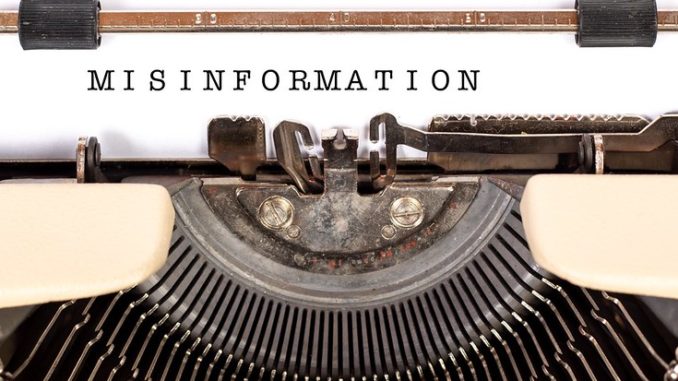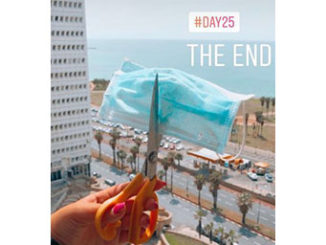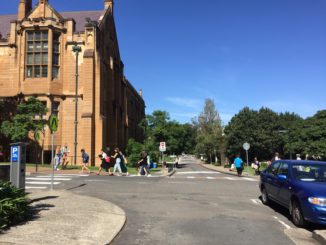
Social media platforms has always had to deal with issues surrounding misinformation, or disinformation online. Whether from people with political agendas or unknowing family members.
With quarantines and lockdowns being caused by coronavirus all around the world, it means that a lot of people will be stuck at home, and that a lot more people will be browsing the web during such troubled times. As a result, the probability of people coming into contact with false information about the coronavirus, or bots that are meant to stir unrest or conflict within the general population has only increased. The World Health Organization describes the situation as being an “infodemic”, everyone is sharing information online through social media channels, making it difficult for online users to distinguish between what is true, and what is false.
COVID-19 MYTH BUSTERS:
There is a lot of false information around #Covid_19.
Here is a fact you should know. #Corona #Mythbusters #StayHomeSaveLives pic.twitter.com/LnHvec0p4n— MoCA_GoI (@MoCA_GoI) April 3, 2020
The India Government telling people online that coronavirus can’t be spread through mosquito bites
That is not to say that social media platforms are willingly negligent towards ensuring that their users aren’t getting the right or correct information, Twitter and Facebook has stated their policy or intentions in dealing with misinformation or disinformation that are spread using their platforms. Just months ago, Twitter has expanded their policy to cover misinformation regarding the coronavirus, and have added labelling and removal of false information about the disease.
Despite such efforts however, rumors about who or what is responsible has already spread, and still continues to this day. Governments from different countries are pinning the blame for this incident on one another, and citizens living under quarantine are at a loss as to who is telling the truth. As such it is increasingly more important for people to recognize and distinguish between fake news and real news, news that can be verified or news that are supported by authentic, reliable sources. Before people start suffering real, or even potentially fatal consequences as a result.

Caught in the middle of this global infodemic are international students, people who are dealing with misinformation not only from their home country, but also with the vast amount of misinformation circulating local media, in this instance, it is interesting to see how they have been impacted by the current infodemic, what opinions and perspectives that they hold in regards to the current COVID-19 incident.
Zheng Hao, a University of Sydney student currently studying Masters said that she gets most of her information through WeChat, Little Red book or Weibo, all of which are Chinese social media platforms, the country she is coming abroad from. She uses them regularly to check up on news and information about coronavirus, and what preparations should be done to last through quarantine. Though she has also used social media platforms like Twitter to “check what other people think about China and what they have done”.
She elaborates, “Sometimes, Chinese newspapers will cite or translate news from overseas in a way that is out of context, so I will often try to find the original source of the information online through news reporting to do a second read through. Whether it is from local media, or media overseas, reporting is never done completely fairly, so I think it is important to do a comparison between both sides.”
One of the particular rumors that she has discussed in her interview, were social media rumors online about people eating bats being responsible for the cause of the coronavirus.
Videos and posts from Chinese origins of people eating bat soup have been shared on social media platforms like Twitter or Instagram. Though the content is real, the context has not been taken into account. The video with the most circulation was taken at Palau, in 2016, subsequent videos that were circulated were also taken in Palau as well.
【“吃蝙蝠”視頻瘋傳 當事人:為自己的無知道歉】隨著新型冠狀病毒感染的肺炎疫情消息不斷從“一線陣地”傳來,被研究認為是病毒自然宿主的蝙蝠,引起網友關注。近日,一段上線於2016年6月的“美女吃蝙蝠”視頻被網友扒出,女主持也因吃蝙蝠而被網友聲討。 22日,涉事主持汪某表示為自己曾經的無知道歉。 pic.twitter.com/sNeEPuCjbU
— 人民日報 People's Daily (@PDChinese) January 25, 2020
People’s Daily clarifying that the video was made in 2016. And that the uploader has made an apology statement on the 22nd (of January).
Hao notes that her attention is mostly focused on “informative facts or tips” that are related to the Coronavirus, instead of news reporting that are made with “political agendas” in mind.
“I think scientific matters should be discussed by scientists alone, words coming from politicians are less trustworthy, because science is not of the utmost priority on their list.” She said.
Another student from University of Sydney shared a similar sentiment. Shihua Ji says that “I don’t believe all of the information that I see online, because it’s very easy for misinformation and disinformation to spread on them nowadays.”
“I usually follow accounts on WeChat that are more authoritative like People’s Daily, or Shanghai City. Because these accounts belong to verified media outlets or the Shanghai government, I am more trusting of them.” She said.
From the interviewees, there is a common indication that reporting or information provided by offical authorities, or sources like large newspapers organizations, are considered more credible, over posts made by the average user. Where it’s possible that people may be making those posts with agendas in mind.
Almost half of the whole world’s population is on social media nowadays, with that, information being shared on platforms like Twitter, WeChat or Facebook will only grow more influential, along with its capacity to spread misleading or harmful information that could lead to anxiety or panic.
When asked about the advantages that students have over others in regards to misinformation or disinformation, Hao responded by saying that “Students have access to more information, with additional channels to verify them. Today you might believe that one false news is true, but you might search it up online tomorrow to find that it is not. But if it is your parents or grandparents, they might be stuck in that false information, and never get out of that loop.”
Considering current levels of online literacy, her concerns are not invalid. User groups like students and international students may have ways of verifying what is true or false online, but others may not have the tools or knowledge to do so.





Be the first to comment